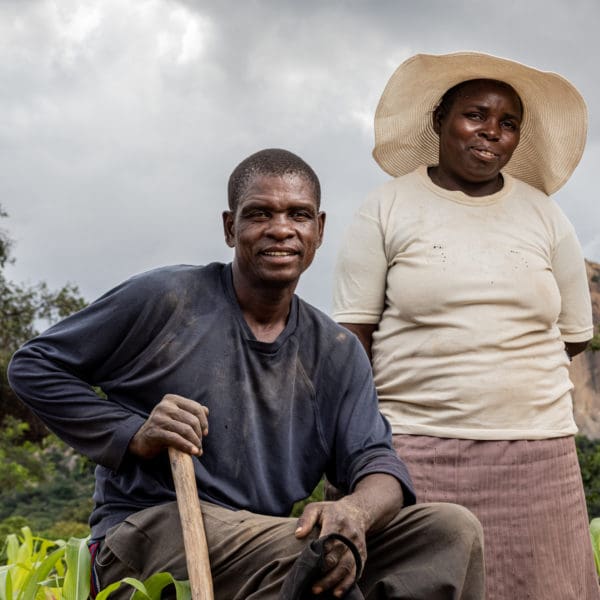
- This event has passed.
Strengthening Climate Smart Agriculture-Resilience: Advancing Policy Dialogue
BACKGROUND
Zimbabwe has faced numerous socio-economic and environmental challenges in recent years, including droughts, economic instability, and the impacts of climate change. These challenges have had significant negative effects on the livelihoods of its citizens, particularly those in vulnerable communities. Building resilience is essential to ensure that Zimbabwe can effectively address and bounce back from these challenges while achieving sustainable development.
To address these issues and promote resilience-building efforts, the Food, Agriculture, and Natural Resources Analysis Network (FANRPAN), in collaboration with its Zimbabwe Country Node Hosting Institution, the Agriculture Research Council (ARC), has partnered with CARE International to implement activities under the Takunda program. Takunda, a five-year Resilience Food Security Activity, USAID-funded program. The program is being implemented by CARE International and partners, International Youth Foundation (IYF), FHI360, Nutrition Action Zimbabwe (NAZ), Bulawayo Projects Centre, and Environment Africa. The program is also supported by two technical partners, FANRPAN and ICRISAT. Program implementation is in two provinces: Masvingo (Chivi and Zaka districts) and Manicaland (Mutare and Buhera districts). Takunda seeks to promote Sustainable, Equitable, and Resilient Food, Nutrition, and Income for the extremely poor, chronically vulnerable, and those at risk of malnutrition, directly impacting 301,636 people in Manicaland and Masvingo provinces in Zimbabwe.
To achieve the program’s goal, Takunda seeks to increase incomes from on-farm, off-farm, and non-farm livelihoods activities (Purpose 1), improving the nutritional status of children under five years of age, adolescent girls, and women of reproductive age (Purpose 2), and building institutional and local capacities among ultra-poor and chronically vulnerable households to cope with shocks and stressors and reduce risk (Purpose 3). Interwoven between the purpose areas and embedded in all program activities are the following cross-cutting themes: gender mainstreaming, youth and social dynamics mainstreaming, social behavior change, environmental safeguarding, community visioning, and engagement and sustainability. To achieve its outcomes, Takunda is implementing climate-smart resilient designs through the Farmer Field Business School (FFBS)1 model. The model has a strong market-based focus, including gender, food security, nutrition, and household income components that enhance collaboration skills between farming communities to engage in equitable decision-making.
The Ministry of Lands, Agriculture, Fisheries, Water, Climate and Rural Development is promoting various policies, including the Agriculture sector policy; Climate Resilient policy, Livestock Production and Growth policy, and Water/ Drought Mitigation policy. Various national strategies are being implemented including the Pfumvudza, food security strategy, Farmer Field Schools; irrigation development, Agriculture for She; and schemes that improve livestock production. Whilst it is acknowledged that the Ministry’s work in this sector resonates largely with Takunda’s climate-smart agriculture resilient approaches there is an opportunity for cross-learning for increased impact. Strengthening the current policies and strategies in the Ministry of Agriculture would facilitate enhancing food security, household income, and nutrition for Takunda and other participants in Zimbabwe communities.
To this end, FANRPAN, the ARC, and CARE International in Zimbabwe are convening a Climate Smart Agriculture: Resilience Design Policy Dialogue on the 23rd of November, 2023.
Policy Dialogue Objectives
The primary objectives of Policy Dialogue are as follows:
- a. To facilitate a multi-stakeholder dialogue: Create a platform for policymakers, researchers, civil society organizations, and community leaders to engage in open discussions on resilience building strategies.
- b. Identify key resilience challenges: Share knowledge and insights to understand the most pressing challenges Zimbabwe’s communities face and develop a common understanding of the issues.
- c. Co-create policy recommendations: Collaboratively develop actionable policy recommendations and strategies that address identified resilience challenges and promote sustainable development.
- d. Foster partnerships and collaborations: Encourage networking and partnerships among diverse stakeholders to enhance coordination in resilience-building efforts.
Expected Outcomes
The Policy Dialogue aims to achieve the following outcomes:
- Policy Recommendations: A set of actionable policy recommendations and strategies for Climate-Smart Agriculture resilience-building in Zimbabwe.
- Increased Awareness: Greater awareness among stakeholders of the importance of climate-smart agriculture resilience building and collaboration in addressing Zimbabwe’s challenges, especially with food security, household income, and nutrition issues.
- Enhanced Partnerships: Establishing partnerships and collaborations among stakeholders for more effective climate-smart resilience-building efforts.
- Commitment to Action: Concrete commitments from conference participants to implement and support the recommended policies and strategies.

